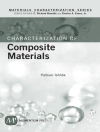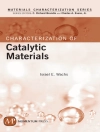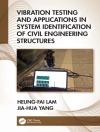This book explores the aggregation-induced emission (AIE) effect, which has opened new avenues for the development of advanced luminogenic materials in the aggregate or solid state. By enabling light emission in the practically useful solid state, AIE has the potential to significantly expand the technological applications of luminescent materials. This book addresses principles, methods, and applications of AIEs, offering a new platform for the investigation of light-emitting processes from luminogen aggregates. Applications of AIE include biomedical diagnostics, sensor materials, and optoelectronic devices, among others, and are described in detail within the book. The development of a new generation of AIEgens, a deep understanding of the AIE mechanism(s), and the exploration of advanced technological applications will enable this exciting field to develop further. Headed by the pioneering researcher who started the field, Professor Ben Zhong Tang, this book combines both principles and applications and brings together global researchers in the field to report the progress, current challenges, and potential breakthroughs that may be accomplished in the near future.
- Provides an authoritative account of the fundamentals, properties, and potential of AIE by the pioneer of this active, highly-researched field;
- Highlights technological applications of AIE spanning biomedicine, sensor materials, and optoelectronics, among others;
- Presents a comprehensive view on challenges in the further development of AIE and derived technologies.
Innehållsförteckning
Chapter 1. Perarylation as a strategy towards aggregation-induced emitters: Will they ever be stable?.- Chapter 2. Rational designs of AIE-active molecules and luminochromic materials based on group 13 element-containing element-blocks.- Chapter 3. Precious metal-free organic small molecule luminophores that exhibit room temperature phosphorescence.- Chapter 4. Polymers with aggregation-induced emission characteristics.- Chapter 5. High performance mechanochromic luminescent materials from AIEgens.- Chapter 6. Mechanoluminescence materials with the characteristic of aggregation induced emission (AIE) .- Chapter 7. Aggregation-induced emission on supramolecular coordination complexes platforms .- Chapter 8. Applications of AIE to molecular recognition: why is it superior to unimolecular recognition?.- Chapter 9. Tetraphenylethene derivatives – a promising class of AIE luminogens: Synthesis, properties and applications.- Chapter 10. AIE-type metal nanoclusters: Synthesis, luminescence, fundamentals and applications.- Chapter 11. Nanocrystals with crystallization-induced or -enhanced emission.- Chapter 12. Fluorescent aptasensor based on aggregation-induced emission probe and carbon nanomaterials.- Chapter 13. Application of aggregation-induced emission fluorogens for detection and quantification of toxic chemicals in small aquatic organism.- Chapter 14. Aggregation Induced Emission: new emerging fluorophores for environmental sensing .- Chapter 15. Aggregation-induced emission (AIE): A versatile tool for chemo/biosensing.- Chapter 16. Utilisation of tetraphenylethene-derived probes with aggregation-induced emission properties in fluorescence detection of biothiols.- Chapter 17. Applications of AIEgens in super-resolution imaging, fluorescence lifetime imaging and fluorescence anisotropy imaging.- Chapter 18. AIE luminogens for three-photon fluorescence bioimaging.- Chapter 19. Aggregation-induced emission luminogens for biomedical applications.- Chapter 20. Aggregation-induced emitters in light harvesting.
Om författaren
Youhong Tang is an Associate Professor and was an Australian Research Council-Discovery Early Career Researcher Award (ARC-DECRA) recipient at Flinders University. He is a research leader in the Flinders Institute for Nano Scale Science and Technology. Dr Tang obtained his Ph D degree at the Hong Kong University of Science and Technology in 2007. He moved to Flinders University from the University of Sydney in 2012. He is a materials science and engineering researcher with interests mainly focused on structure-process-property relation of polymeric materials and nanocomposites, bioresources, biomaterials and biosensors incorporating novel aggregation-induced emission material. In the last 5 years, he has published more than 120 SCI journal papers that have been cited more than 3, 900 times, and his Hirsch index is 30. He has served as a referee for over 60 SCI journals.
Ben Zhong Tang is Stephen K. C. Cheong Professor of Science and Chair/Professor of Chemistry and Biomedical Engineering at The Hong Kong University of Science and Technology. His research interests include macromolecular chemistry, materials science, and biomedical theranostics. He is spearheading the research on aggregation-induced emission (AIE), a topic ranked no. 2 in the areas of Chemistry and Materials Science by Thomson Reuters in its report on Research Fronts 2015. Professor Tang received the B.S. and Ph.D. degrees from South China University of Technology and Kyoto University, respectively. He conducted postdoctoral research at the University of Toronto. He joined HKUST as an assistant professor in 1994 and was promoted to chair professor in 2008. He has been elected to the Chinese Academy of Sciences (CAS) and the Royal Society of Chemistry (RSC). Having published more than 900 papers, his publications have been cited more than 40, 000 times, with an h-index of 102, he has been listed by Thomson Reuters as a Highly Cited Researcher in both areas of Chemistry and Materials Science. He received a Senior Research Fellowship from the Croucher Foundation in 2007, Scientific and Technological Progress Award from the Ho Leung Ho Lee Foundation and the first prize in Natural Science Award from the Chinese Government in 2017. He also got generous supporting from the National Natural Science Foundation of China to establish Centre for Luminescence for Molecular Aggregates in South China University of Technology in 2017. He is now serving as Editor-in-Chief of Materials Chemistry Frontiers.












